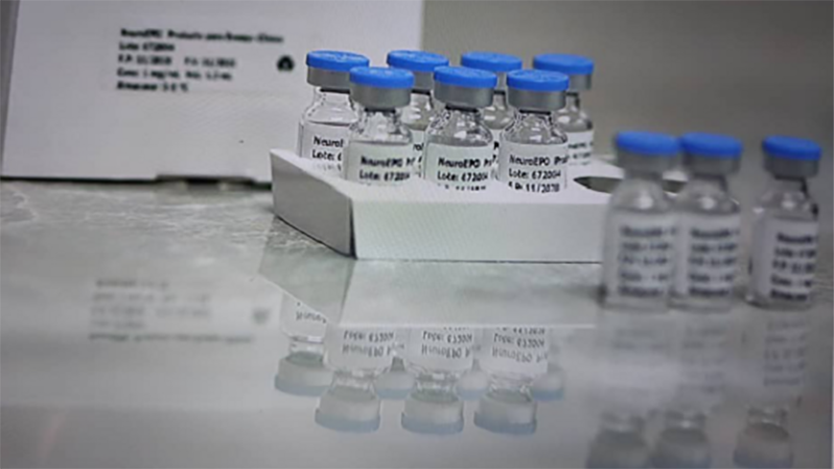More than 10 patients from Ciego de Ávila, affected with the amnestic Alzheimer's phenotype, will participate in the clinical trial of the Cuban drug NeuralCIM, whose third phase began in the last days of February throughout the country.

Dr. Carlos Manuel Pérez Ávila, a First Degree specialist in Neurology, told the provincial radio station Radio Surco that the effectiveness and safety of the drug would be evaluated here by a multidisciplinary team from the two provincial hospitals.
The neuroprotectant NeuralCIM, developed by the Center for Molecular Immunology, is applied nasally in people suffering from the mild-moderate amnestic variant Alzheimer's disease phenotype. In the study to be carried out in Havana, the sample will be 413 people, while in the rest of the national territory it includes 1,456 patients.
In #CiegodeAvila, more than 10 patients affected with the amnestic Alzheimer's phenotype are incorporated into the clinical trial with NeuralCIM, to evaluate the effectiveness and safety of the drug. pic.twitter.com/cBSyePrM2A
The research has been described as "very complex", since in the trial in the Cuban capital "patients will be diagnosed not only from a clinical point of view, but also from a molecular one, as required by good clinical practices in the world and the different regulatory agencies, for the accurate diagnosis of Alzheimer's.
"In the rest of the country, this diagnosis will be made from a clinical point of view, since all the necessary technological equipment for molecular tests is not available," a Cubadebate report specifies.
Caregivers of patients who could be included in the phase three trial of the NeuralCIM in Ciego de Ávila ―with symptoms that suggest the possibility of dementia― should contact the specialist of the Clinical Trials Department at the provincial hospitals, Doctor Antonio Luaces Iraola and Roberto Rodríguez, the latter in the city of Morón, after evaluation by the specialist in his Health area.
According to the design, the study in the provinces will last 24 months and there will be intermediate analyzes to assess compliance with the proposed hypotheses.
Nelson Gómez Viera, head of neurology at the Hermanos Ameijeiras Clinical Surgical Hospital, told Cubadebate that “for the first time in our country a biological marker of the disease is going to be made. A trial will determine ABeta42, a protein in the cerebrospinal fluid, whose detection for the international scientific community is confirmatory of the diagnosis of Alzheimer's dementia”.
“Currently there is no treatment that stops the progression of the disease. There are hardly any drugs that achieve an improvement in any of the cognitive functions over a period of time, but there is no drug that really acts on issues of the pathophysiology of the disease.
If the NeuralCIM confirms its efficacy and safety, it would not only be an important achievement for Cuba, but also for the rest of the world, due to its usefulness for the treatment of this disabling disease”, he pointed out.
Regarding to Science Doctor Juan Llibre Rodríguez, president of the Cuban section on Alzheimer's disease, around 160,000 people currently live with dementia in Cuba, which represents 1.3 percent of the population. It is estimated that this figure will reach 300,000 people in the year 2040, raising that proportion to 3 percent of the population.
According to the summary of product characteristics, endorsed by the Center for State Control of Medicines, Medical Equipment and Devices (Cecmed), NeuralCIM exerts its pharmacological function as a neuroprotective agent, activating multiple signaling mechanisms for neuronal cell death; reduces inflammation and local edema; increases defenses in the cortical and subcortical regions of the brain; and induces Neuroglobin protein synthesis selectively in damaged regions.




